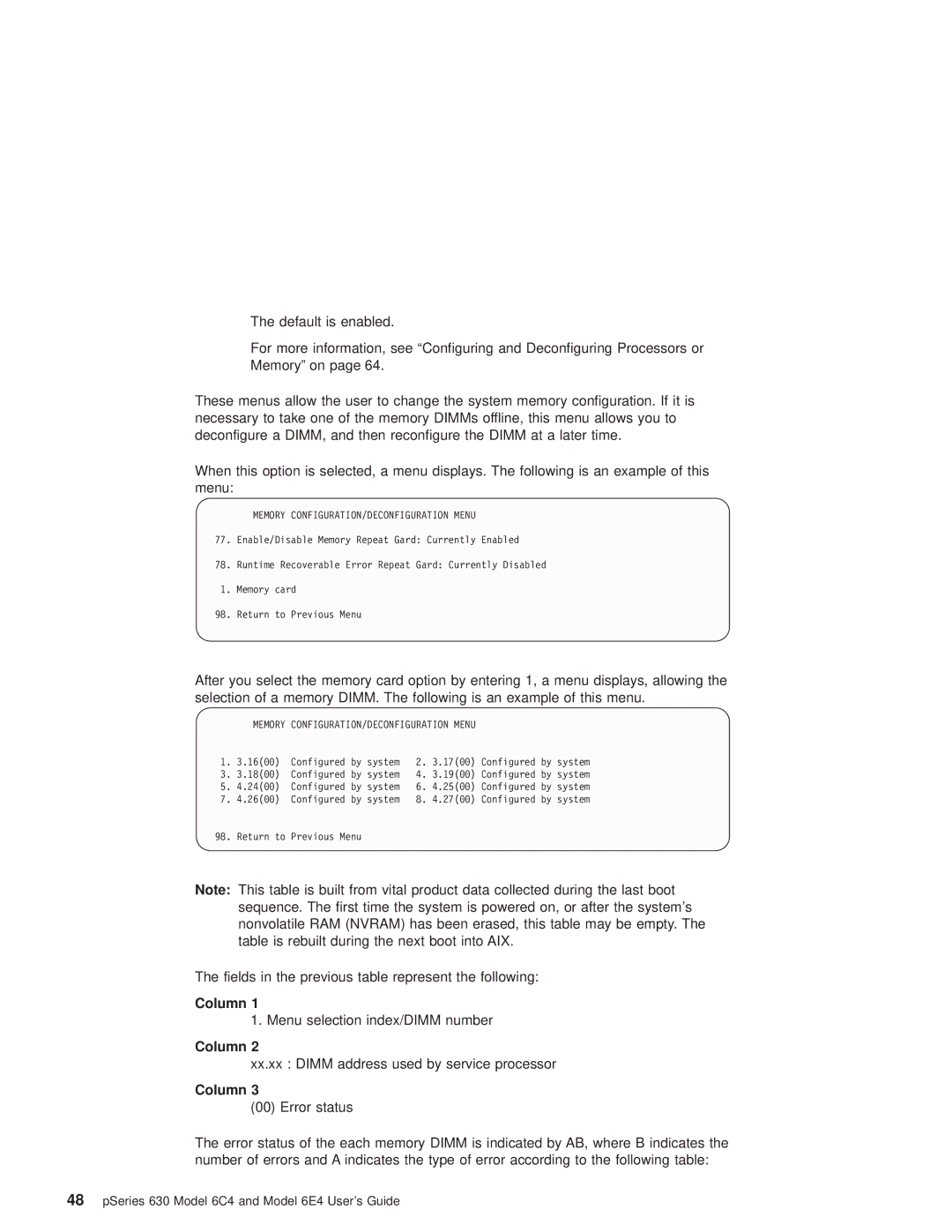
The default is enabled.
For more information, see ªConfiguring and Deconfiguring Processors or Memoryº on page 64.
These menus allow the user to change the system memory configuration. If it is necessary to take one of the memory DIMMs offline, this menu allows you to deconfigure a DIMM, and then reconfigure the DIMM at a later time.
When this option is selected, a menu displays. The following is an example of this menu:
MEMORY CONFIGURATION/DECONFIGURATION MENU
77.Enable/Disable Memory Repeat Gard: Currently Enabled
78.Runtime Recoverable Error Repeat Gard: Currently Disabled
1.Memory card
98. Return to Previous Menu
After you select the memory card option by entering 1, a menu displays, allowing the selection of a memory DIMM. The following is an example of this menu.
MEMORY CONFIGURATION/DECONFIGURATION MENU
1. | 3.16(00) | Configured by system | 2. | 3.17(00) Configured by system |
3. | 3.18(00) | Configured by system | 4. | 3.19(00) Configured by system |
5. | 4.24(00) | Configured by system | 6. | 4.25(00) Configured by system |
7. | 4.26(00) | Configured by system | 8. | 4.27(00) Configured by system |
98. | Return to | Previous Menu |
|
|
Note: This table is built from vital product data collected during the last boot sequence. The first time the system is powered on, or after the system's nonvolatile RAM (NVRAM) has been erased, this table may be empty. The table is rebuilt during the next boot into AIX.
The fields in the previous table represent the following:
Column 1
1. Menu selection index/DIMM number
Column 2
xx.xx : DIMM address used by service processor
Column 3
(00) Error status
The error status of the each memory DIMM is indicated by AB, where B indicates the number of errors and A indicates the type of error according to the following table:
